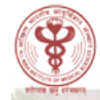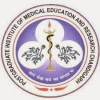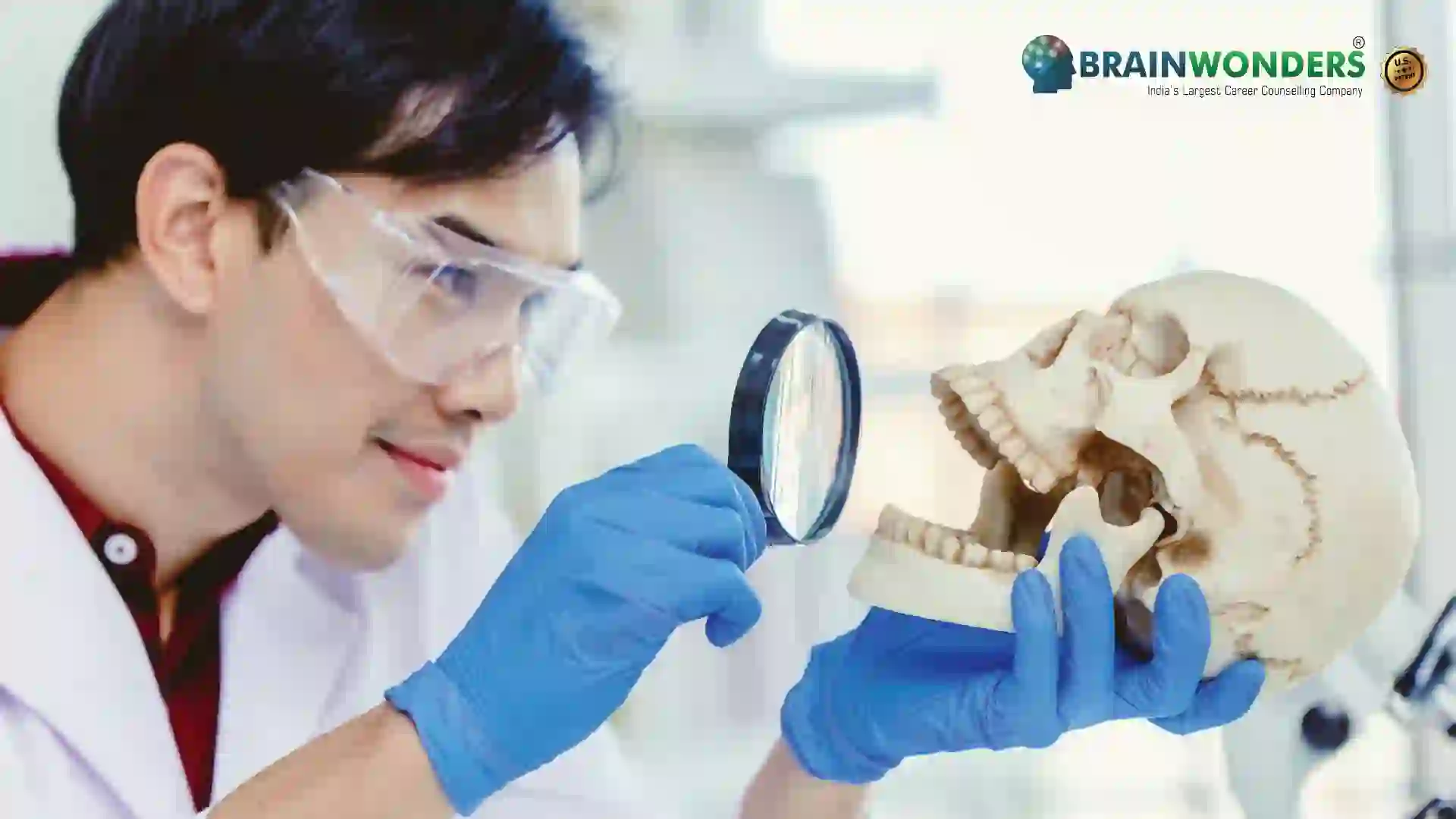How to become a Medical Scientist
Overview, Courses, Exam, Colleges, Pathways, Salary

Overview
Who is Medical Scientist ?
Medical research is a branch of healthcare science that involves the study of diagnostic products, devices, safety, and effectiveness of medications, treatments for human use. Medical Research is a very demanding branch of medicine. Medical Research is a branch of Medical Research where researchers work in research centres for drugs and cures. As per the Indian Government, each medicine is first examined by a medical scientist and then presented in the market, the demand for medical scientists becomes high. Medical Researchers search for the best way for the prevention and treatment of various diseases.
An individual who practices medical science and has studied clinical research courses is usually referred to as a medical scientist or Clinical Investigator. The role of the medical scientists is to investigate and determine the safety and efficacy of new medical products including devices, diagnostic agents, drugs, vaccines and treatment regimens intended for maintaining and regaining human health which helps in the treatment, diagnosis prevention, relieving symptoms of a disease.
Typical day at work
What does Medical Scientist do?
- To prepare and control of research budgets and financial payments.
- To enter study data into the applicable database.
- To maintain records of study related activity which includes drug dispensation records, case report forms, etc.
- To communicate with researchers or laboratories about laboratory findings.
- To consult with health care experts for the best recruitment practices for clinical trials.
Abilities and Aptitude needed
What are the skills, abilities & aptitude needed to become Medical Scientist?
To become a medical scientist, the aspirants must have certain skills like Communication because medical scientists must be able to explain their conclusions also, they have to write grant proposals to fund their research. Critical-thinking skills to determine the best method for solving a specific research question. Data-analysis skills use statistical techniques for proper quantification and analyzing the health research questions. Decision-making skills must determine what research questions to ask what data will best answer the questions, how best to investigate the questions, Observation skills require precise observation of samples and other health-related data.
Salary
Salary for Medical Scientist?
Salary of a Medical Scientist is as follows :
- Minimum Monthly Salary: Entry-level Medical Scientists in India typically receive a monthly salary ranging from approximately INR 25,000 to INR 40,000, especially when starting their careers or working in research assistant positions.
- Maximum Monthly Salary: Experienced and highly skilled Medical Scientists, particularly those leading research projects, working in prestigious research institutions, or holding advanced degrees, can earn a maximum monthly salary of INR 60,000 to INR 1,00,000 or more.
- Annual Salary: The annual salary of a Medical Scientist varies based on factors such as experience, specialization (e.g., biomedical research, clinical trials), the nature of research conducted, and affiliations with academic institutions or pharmaceutical companies. Annual earnings may range from INR 3,00,000 to INR 12,00,000 or higher for established professionals.
- Highest Paying Job and Scope: Medical Scientists focusing on specialized areas, such as genetics, drug development, or epidemiology, often secure higher-paying positions due to the technical and specialized nature of their research. Professionals with advanced degrees (PhD or MD-Ph.D.) and a strong publication record may also have enhanced earning potential. The scope for Medical Scientists is promising as scientific research advances medical knowledge, treatment modalities, and healthcare innovations. With ongoing developments in medical technology and a growing emphasis on evidence-based practices, skilled Medical Scientists are integral to pushing the boundaries of medical understanding and contributing to improved patient care and public health. Its expanding research landscape offers significant opportunities for career growth, specialization, and impactful contributions to the healthcare and scientific community.
Pathways
How to become an Medical Scientist?
Entrance Exam
Entrance Exam for Medical Scientist ?
To enroll into a Bachelor's Program, it is essential for the aspiring candidate to clear entrance exams conducted by various educational institutes. Most widely conducted entrance exams for career are
- Karnataka Post Graduate Common Entrance Test (Karnataka PGCET)
- Guru Gobind Singh Indraprastha University Common Entrance Test (IPU CET)
- Manipal University Online Entrance Test (MU OET)
- Central Universities Common Entrance Test (CUCET)
- Mahatma Gandhi University - Common Admission Test (MGU CAT)
- Bharati Vidyapeeth Common Entrance Test (BVP CET)
- Indian Statistical Institute Admission Test (Isi Admission Test)
- Tamil Nadu Common Entrance Test (TANCET)
- Indian Institute of Technology Joint Admission Test (IIT JAM)
- National Entrance Screening Test (Nest)
- Kalinga Institute of Industrial Technology Entrance Exam (KIITEE)
- Integral University Entrance Test (IUET)
- Gitam Science Admission Test (GSAT)
- Acharya Nagarjuna University Post Graduate Common Entrance Test (ANUPGCET)
- Birla Institute of Technology and Science Admission Test (BITSAT)
- AIIMS M.Sc. Entrance Examination (AIIMS)
- Tata Institute of Social Sciences National Entrance Test (TISSNET)
Courses
Which course I can pursue?
Best Colleges
Which are the best colleges to attend to become an Medical Scientist?
Industries
Which Industries are open for Medical Scientist?
Medical Scientists have diverse opportunities across various industries due to their crucial role in advancing healthcare research, innovation, and patient care. Some of the industries open for Medical Scientists include:
- Academic and Research Institutions: Universities, medical schools, and research organizations employ Medical Scientists in laboratories and research centres, focusing on various medical disciplines.
- Pharmaceutical and Biotechnology Companies: Medical Scientists contribute to drug discovery, development, and testing, ensuring the safety and efficacy of medications.
- Government Health Agencies: Organizations like the National Institutes of Health (NIH), Centers for Disease Control and Prevention (CDC), and Food and Drug Administration (FDA) employ Medical Scientists for medical research, public health initiatives, and regulatory oversight.
- Hospitals and Medical Centers: Medical Scientists may work in hospital research departments, clinical trials, and medical diagnostics, contributing to advancements in patient care.
- Clinical Research Organizations (CROs): CROs conduct clinical trials on behalf of pharmaceutical companies, providing Medical Scientists with opportunities to oversee and manage clinical studies.
- Biomedical Research Facilities: Research institutions focused on biomedicine, genetics, molecular biology, and cellular research offer roles for Medical Scientists.
- Genomics and Personalized Medicine: As genomics advances, industries specializing in genetic research, genome sequencing, and personalized medicine offer opportunities.
- Public Health and Epidemiology: Medical Scientists can work on disease surveillance, epidemiological studies, and health policy development within public health organizations.
- Health IT and Bioinformatics: Industries involving data analysis, bioinformatics, and medical informatics employ Medical Scientists to interpret and utilize healthcare data.
- Medical Device Companies: Medical Scientists contribute to researching and developing innovative medical devices and technologies.
- Pharmacovigilance and Drug Safety: Medical Scientists monitor and assess the safety of drugs and medical products in this field.
- Neuroscience and Neurology: Industries focused on brain research, neurodegenerative diseases, and neurological disorders offer roles for Medical Scientists.
- Immunology and Infectious Diseases: Medical Scientists contribute to vaccine development, immune system research, and infectious disease studies.
- Environmental and Occupational Health: Medical Scientists may research the impact of environmental factors on health or work on occupational health and safety initiatives.
- Nonprofit Organizations and Advocacy Groups: Many nonprofits focus on specific medical conditions, diseases, or patient populations and rely on Medical Scientists to advance their missions.
internship
Are there internships available for Medical Scientist?
Internships for Medical Scientists provide valuable hands-on experience in research settings and allow individuals to gain insight into medical research. While internships might vary in availability based on location and specific research institutions, here are potential avenues to explore:
- Academic Research Labs: Many universities and medical schools offer summer or short-term internships in their research laboratories. These internships provide exposure to a wide range of medical research areas.
- Pharmaceutical and Biotechnology Companies: Large pharmaceutical and biotech firms often offer internships in drug development, clinical trials, and laboratory research.
- Government Agencies: Organizations like the National Institutes of Health (NIH) and the Centers for Disease Control and Prevention (CDC) may offer internship programs in various research fields.
- Hospitals and Medical Centers: Teaching hospitals and medical centres might have research departments or clinical trials that offer internships focused on medical research.
- Nonprofit and Research Organizations: Many nonprofit organizations and research foundations have internship programs to advance specific medical research goals.
- Cancer Centers: Comprehensive cancer centres often have research-focused internships, particularly in oncology and related fields.
- Public Health Departments: Internships with public health agencies can provide insights into medical research related to epidemiology, disease prevention, and health policy.
- Genomic Research Facilities: With the rise of genomics, facilities specializing in genetic research may offer internships focused on genetics and molecular biology.
- Clinical Research Organizations (CROs): These organizations conduct clinical trials on behalf of pharmaceutical companies and might have internships related to clinical research and trial management.
- Medical Device Companies: Companies developing medical devices may offer internships in research and development, testing, and validation.
- Neuroscience and Neurology Institutes: Internships in neuroscience research centres can offer exposure to brain-related research.
- Bioinformatics and Computational Biology Labs: For those interested in data analysis, internships in labs focusing on bioinformatics and computational biology might be available.
Career outlook
What does the future look like for Medical Scientist?
The future for Medical Scientists appears promising as healthcare continues to advance. With a focus on research and innovation, they will play a pivotal role in developing new treatments, medications, and technologies. Advances in genomics, personalized medicine, and biotechnology will drive demand for their expertise. Medical Scientists will collaborate across disciplines, contributing to groundbreaking discoveries in disease prevention, diagnosis, and therapy. Opportunities will emerge in academia, pharmaceutical companies, research institutions, and government agencies. Data analysis and computational skills will be increasingly important. Ethical considerations and regulatory compliance will also shape their work. As medical research accelerates, Medical Scientists will significantly enhance global healthcare and patient outcomes.




.webp)


